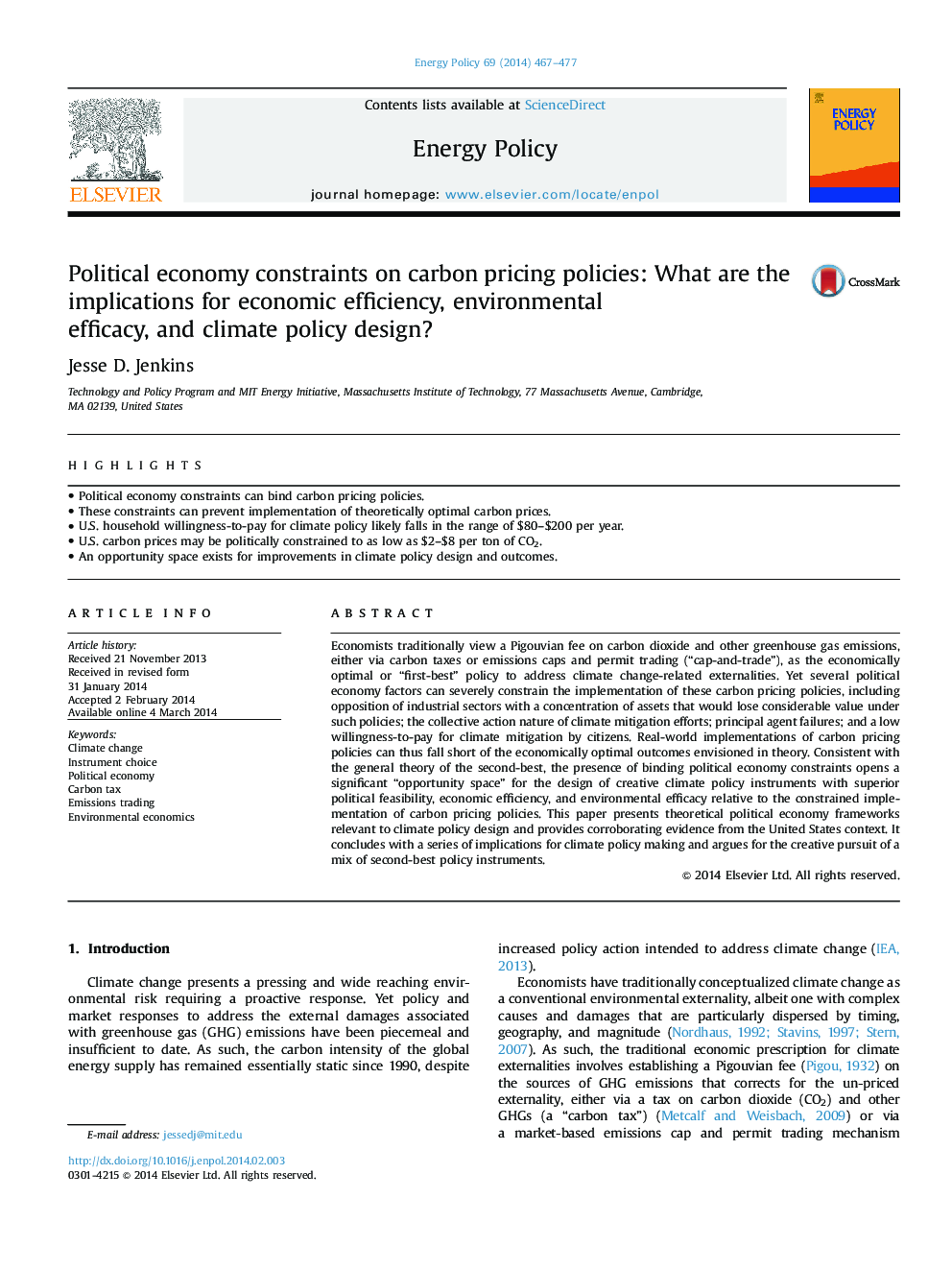| کد مقاله | کد نشریه | سال انتشار | مقاله انگلیسی | نسخه تمام متن |
|---|---|---|---|---|
| 992923 | 1481289 | 2014 | 11 صفحه PDF | دانلود رایگان |
• Political economy constraints can bind carbon pricing policies.
• These constraints can prevent implementation of theoretically optimal carbon prices.
• U.S. household willingness-to-pay for climate policy likely falls in the range of $80–$200 per year.
• U.S. carbon prices may be politically constrained to as low as $2–$8 per ton of CO2.
• An opportunity space exists for improvements in climate policy design and outcomes.
Economists traditionally view a Pigouvian fee on carbon dioxide and other greenhouse gas emissions, either via carbon taxes or emissions caps and permit trading (“cap-and-trade”), as the economically optimal or “first-best” policy to address climate change-related externalities. Yet several political economy factors can severely constrain the implementation of these carbon pricing policies, including opposition of industrial sectors with a concentration of assets that would lose considerable value under such policies; the collective action nature of climate mitigation efforts; principal agent failures; and a low willingness-to-pay for climate mitigation by citizens. Real-world implementations of carbon pricing policies can thus fall short of the economically optimal outcomes envisioned in theory. Consistent with the general theory of the second-best, the presence of binding political economy constraints opens a significant “opportunity space” for the design of creative climate policy instruments with superior political feasibility, economic efficiency, and environmental efficacy relative to the constrained implementation of carbon pricing policies. This paper presents theoretical political economy frameworks relevant to climate policy design and provides corroborating evidence from the United States context. It concludes with a series of implications for climate policy making and argues for the creative pursuit of a mix of second-best policy instruments.
Journal: Energy Policy - Volume 69, June 2014, Pages 467–477
